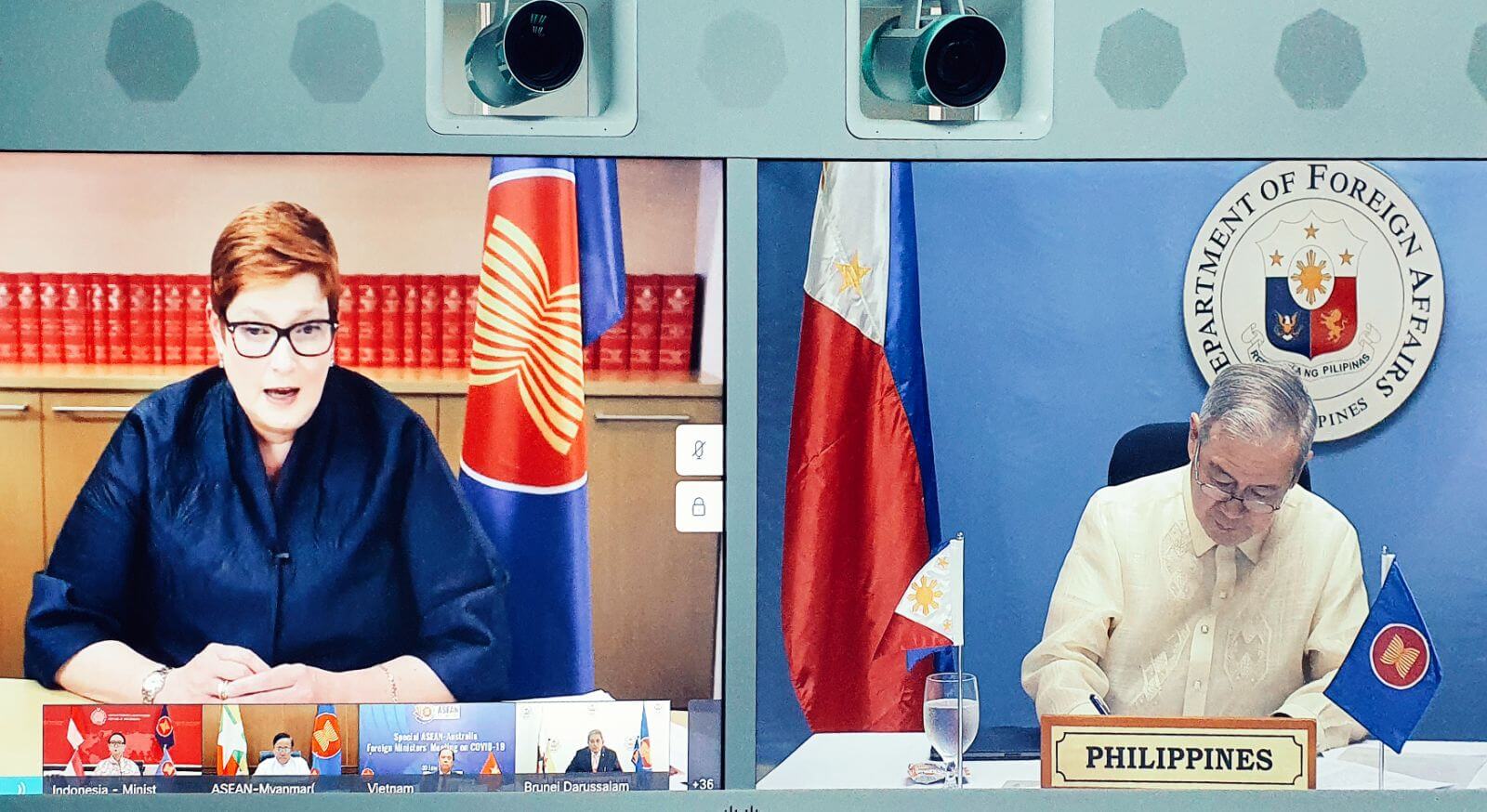Australian Minister for Foreign Affairs and Minister for Women Marise Payne and Minister for Trade, Tourism, and Investment Dan Tehan discussed bilateral ties with Philippine Secretary of Foreign Affairs Teodoro Locsin Jr. and Secretary of Trade and Industry Ramon Lopez at the fifth Philippines-Australia Ministerial Meeting (PAMM) on Monday.
Marking the 75th anniversary of their diplomatic relations, the representatives of both countries reviewed political, economic, defence, security, development, and education partnerships. They also acknowledged the importance of strategic dialogue to outline bilateral relations between the two countries as per the 2015 Joint Declaration on the Comprehensive Partnership.
Regarding the COVID-19 pandemic, the officials expressed remorse over lost lives, acknowledged the continuing engagement between both nations regarding public health, and noted Australia’s vaccine-related contribution to the region, including the AUD523 million Vaccine Access and Health Security Initiative, from 2020-23, for “vaccine procurement, delivery support, and the provision of technical assistance.”
In addition, the Australian ministers reaffirmed their commitment to the development partnership with the Philippines “to strengthen health security; maintain stability via activities such as supporting peacebuilding efforts in Mindanao and responding to humanitarian crises; and promote economic recovery.” The representatives also agreed to escalate cooperation in defence and security by exercises, training, and capacity building. Furthermore, they highlighted the importance of the bilateral Memorandum of Understanding on Cooperative Defence Activities and the Status of Visiting Forces Agreement (SOVFA).
Both sides also recognised security cooperation as the most effective measure to address instability and traditional and non-traditional security threats. Concerning this, they talked about the importance of continued cooperation on “counter-terrorism, intelligence-sharing, border security, transport and law enforcement.”
The representatives further committed to close cooperation to uphold the implementation of human rights via dialogue and constructive engagement. Discussions were also held on regional strategic issues, including maritime security. The Ministers reaffirmed their shared aspiration for a maritime domain that is peaceful, stable and secure and noted the importance of ongoing cooperation on maritime security. They also welcomed new initiatives to expand cooperation on maritime issues, including establishing a Philippines-Australia Maritime Dialogue mechanism this year.
Additionally, both sides expressed concern over the continuous military buildup in the South China Sea and the unsafe use of coast guard vessels and maritime militias to disrupt resource extraction by other countries. According to a press release: “The Ministers and Secretaries reiterated the importance of freedom of navigation and overflight and that all disputes should be resolved peacefully in accordance with international law, including the 1982 United National Convention on the Law of the Sea (UNCLOS).”
The representatives also discussed deteriorating conditions in Myanmar and called for an immediate end to violence and dialogue between all parties. To this end, they discussed the role of the Association of Southeast Asian Nations (ASEAN) in providing a peaceful solution in Myanmar and extended their support for ASEAN centrality.
The officials then voiced their support for a “rules-based multilattwhich have helped reduce trade tariffs and promoted inclusive and equitable growth in the region.
Furthermore, the representatives discussed climate change, open and collaborative education, sustainable economic growth, clean energy, and migration issues. The countries looked forward to strengthening people-to-people ties via activities through the proposed Work and Holiday Visa arrangement.
SUMMARY: Philippines-Australia Ministerial Meeting
The foreign and trade ministers and secretaries of Australia and the Philippines discussed the COVID-19 pandemic, defence cooperation, and economic ties, along with climate change and migration.
August 25, 2021

SOURCE: DEPARTMENT OF FOREIGN AFFAIRS, PHILIPPINES
